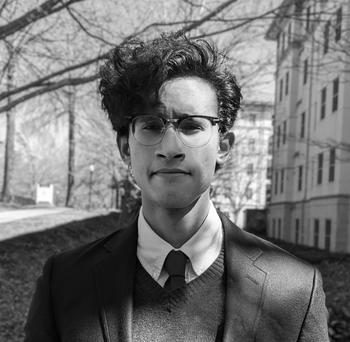USA governed by international law? Yale prof explains his proposed constitutional amendment.
'Campus Reform' interviewed a Yale professor who recently advocated for enshrining international law into the Constitution.
According to the professor, America’s aggressive foreign policy, systemic racism and conservative judicial branch make such an amendment worth pursuing.
Last week, Samuel Moyn, who serves as a professor of both history and jurisprudence at Yale University, argued for a constitutional amendment that would impose international law on American citizens.
Writing for The New York Times, Moyn made his claim in a piece that features a series of essays advocating for hypothetical amendments to the United States Constitution. In Moyn’s essay, he argues for an amendment that he surmises as “International law shall be part of American law.”
Moyn includes a reference to Nazi Germany.
“While the United States today is a far cry from Nazi Germany,” he continued “it has nonetheless proved itself to be a threat to world peace, blatantly and regularly violating international rules or letting its lawyers twist limits on war into licenses to strike.”
[RELATED: US incarceration is brutal, just like Soviet and Nazi prisons, according to Yale profs]
Moyn argues that the United States should model its constitution after post-war Germany’s, insofar as its respect for international law over national sovereignty goes. According to him, this would be necessary for America’s “atonement.”
Campus Reform asked Moyn if his amendment would diminish the democratic sovereignty of the American people to which he responded “any amendment to the US Constitution reflects a supermajority of the people: it has passed with support of at least two thirds of the members of each house of Congress, and of three quarters of the states. So the amendment would be democratic in that sense.”
The proposed amendment, Moyn says in The New York Times, would “[place] constraints so the country cannot launch disastrous wars of choice as easily or send drones or special forces practically anywhere for deadly missions.”
Moyn also claims in his essay that it would allow racial minorities to go before the United Nations to bypass America’s allegedly racist judicial system. He says such an amendment would allow marginalized groups to make legal appeals to internationally recognized standards of discrimination, which they cannot do within the current system.
Moyn cited an increasingly conservative judiciary as part of his reasoning for supporting an amendment that would incorporate international law into the constitution. “Conservative Supreme Court justices” he asserts, are “taking the country even more fully outside international norms by making them ever harder to invoke in our judicial system.”
At the end of his short essay, Moyn wrote out his entire proposed amendment. It reads as follows:
“In order to promote world peace, and consenting to such limitations on sovereign powers as required, the American people declare that international law is part of our law, directly creating rights and duties for citizens. Acts tending to and undertaken with intent to disturb the peaceful relations among nations shall be unconstitutional and be made a criminal offense. The inviolable and inalienable rights of persons are the basis of peace and justice within and beyond U.S. Territory.”
When asked by Campus Reform what would happen if international and American law conflicted, Moyn stated that “there are a lot of intricate issues I don’t cover in the brief article, but it would still be up to the Senate to ratify (or not) treaties it likes (or doesn’t), and American judges to interpret international law their own way.”
“Further,” he continued “as I note in the article, in the German system international law only supersedes German law when it provides something deemed superior, rather than worse.”
Moyn’s academic spealites encompass international law, human rights, the law of war, and legal thought, 20th-century European moral and political theory.

